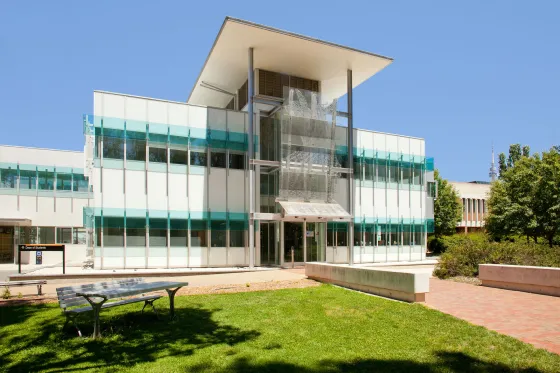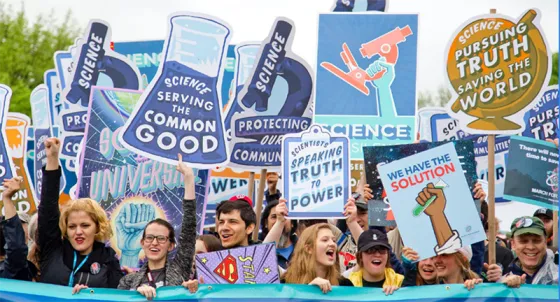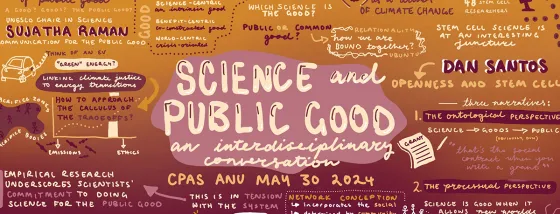Background and Objectives
The UN 2030 Agenda

The UN 2030 Agenda sets an ambitious goal: to transform deep-rooted inequalities within and between nations while securing the planet’s long-term sustainability. Science, engineering, technology and innovation are critical to achieving this vision. But these fields are increasingly being asked to interact with other disciplines, engage with society, transform policy agendas, and ultimately, rethink how sustainable futures and the global good are imagined and acted upon.
The UN 2030 Agenda represents an ambitious vision for transformative global change in the face of planetary crisis. Defined by the Sustainable Development Goals (SDGs), the Agenda is predicated on the core insight that environmental sustainability, equity and prosperity are inextricably linked.
But working out what this means for the knowledge we create, communicate and use to foster transformation in different settings remains a challenge.
What do these evolving expectations mean for how science informs policy, the directions of technological innovation and our approach to environmental challenges? Researchers and innovators working towards the 2030 Agenda are now tasked with addressing these critical questions while engaging inclusively with diverse perspectives, priorities, values and forms of expertise. But how can they do so ethically and reflexively?
UNESCO Chairs serve as prime vehicles for building higher institutions' capacity in specific areas of scholarship through exchange, collaboration, knowledge transfer and sharing in the spirit of international solidarity. Working in the Asia-Pacific region and connecting with partners elsewhere in the world, this Chair contributes to UNESCO’s work in fostering inclusive ways of bringing science, engineering, technology and innovation (SETI) to bear on the Sustainable Development Goals.
The UNESCO Chair at CPAS

Transforming knowledge-systems requires work within and across the biophysical and social sciences and the humanities, as well as at the interfaces between science, civil society, public policy, the media and economic institutions. It calls for dialogue between institutionalised, local and Indigenous ways of knowing. This Chair aims to build capacity in different areas from research to policy to public engagement to grapple with these complexities of changing the way we produce and use knowledge in service of more sustainable and equitable futures.
The UNESCO Chair in Science Communication for the Public Good was launched in 2022. Supported by the Australian National University, the Chair is based in the Centre for the Public Awareness of Science (CPAS), a global leader in science communication, science-society relations, responsible innovation and the science-policy interface. The Chair works closely with aligned groups, notably the ANU Responsible Innovation Lab (RI Lab), and other members of CPAS. These networks and connections makes the Chair uniquely placed to address these questions.
Critical Narratives in Science

Transformative knowledge demands sustained attention to issues of culture, meaning and imagination. This includes the question of what forms of knowledge are meaningful in diverse settings and why. It also requires collaborative approaches to elicit and foster inclusive ways of connecting environmental, social and economic matters in the context of diverse histories, assumptions and values.
The UNESCO Chair in Science Communication for the Public Good responds to this challenge. The Chair aims to enhance the contribution of science communication research to the task of exploring and imagining the knowledge-systems needed for the 2030 Agenda and beyond. It will contribute to UNESCO’s work in fostering the development and appreciation of inclusive, integrative and diverse ways of bringing science, engineering, technology and innovation (SETI) to bear on the SDGs.
The narratives of planetary crisis—e.g., in earth systems science—and of breakthrough science—e.g., in technological visions for agriculture, conservation and medicine including synthetic biology, carbon removal and renewable energy transitions—speak in very different ways to the transformative futures invoked by numerous actors around the globe.
Our work tackles critical questions posed by these narratives and investigates how concepts of science communication for public good might answer them:
- How do different stakeholders (researchers, communities, publics, learned academies, government advisors, policymakers, journalists, businesses) make sense of the hopes, fears and transformative prospects associated with these contrasting scientific narratives?
- How do they assess the diverse, often conflicting, forms of knowledge intended to bring about change?
- Can we engage constructively across these differences and develop meaningful narratives in common?
Objectives

With science communication as our common focus, we build on CPAS’ strengths in science and technology studies, sustainability and transdisciplinary sciences, science policy, inclusive science engagement, responsible innovation, informal science learning, and science and popular culture.
- To elicit and specify what public good means in various settings and the implications of this for transformative knowledge.
- To initiate and co-develop a platform for meaningful research, knowledge exchange and collaboration in science communication for the SDGs.
- To translate research insights from science communication for developing inclusive knowledge cultures within universities and at the science/policy and science/civil society interface.
- To develop and test frameworks for connecting diverse forms of knowledge about environment, equity and prosperity for transformative change, and identify ways of negotiating diversity in the common good.
- To promote and support a network for science communication in the Asia-Pacific region with links to key nodes elsewhere in the world.
